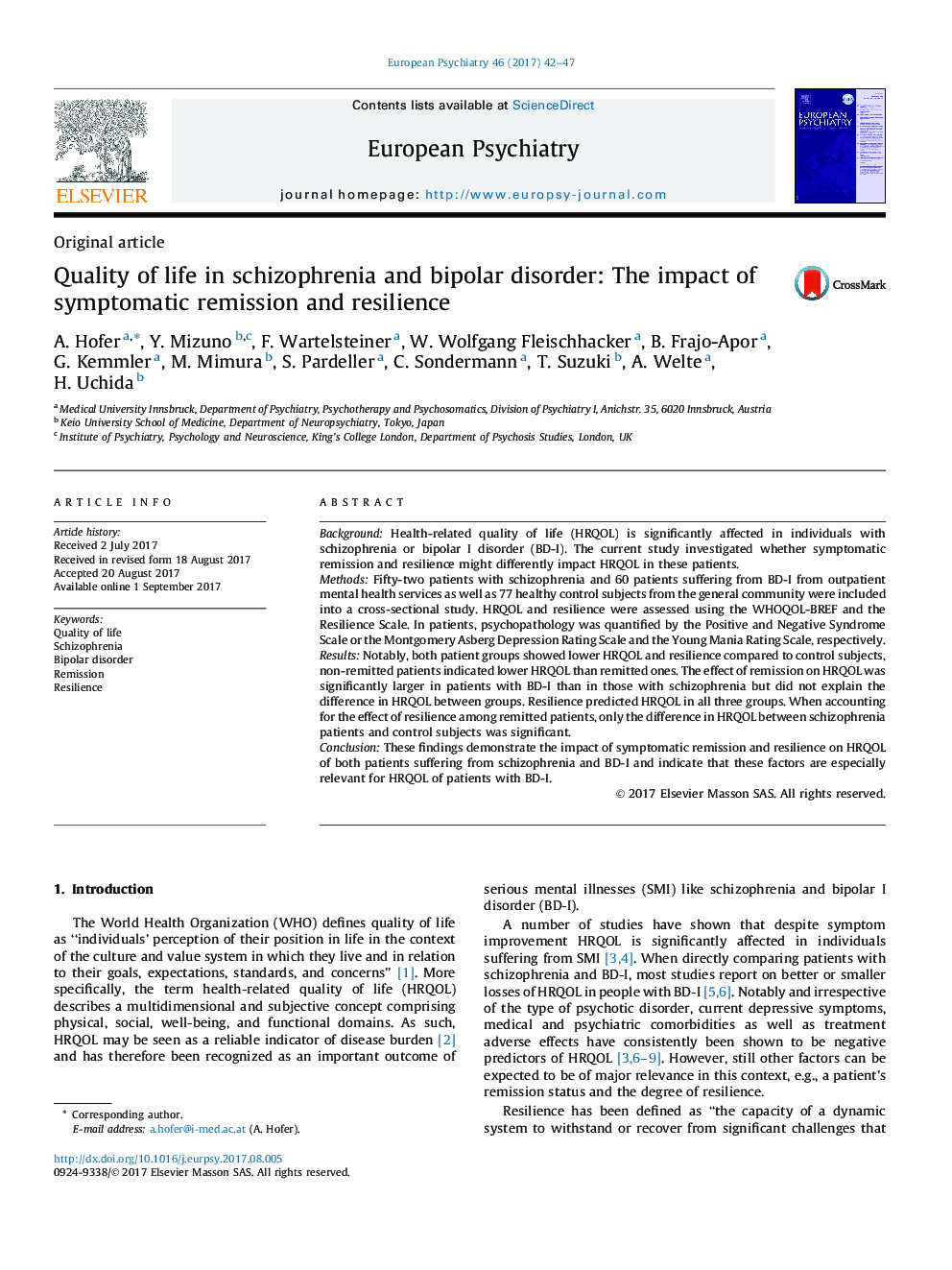| Article ID | Journal | Published Year | Pages | File Type |
|---|---|---|---|---|
| 5721340 | European Psychiatry | 2017 | 6 Pages |
BackgroundHealth-related quality of life (HRQOL) is significantly affected in individuals with schizophrenia or bipolar I disorder (BD-I). The current study investigated whether symptomatic remission and resilience might differently impact HRQOL in these patients.MethodsFifty-two patients with schizophrenia and 60 patients suffering from BD-I from outpatient mental health services as well as 77 healthy control subjects from the general community were included into a cross-sectional study. HRQOL and resilience were assessed using the WHOQOL-BREF and the Resilience Scale. In patients, psychopathology was quantified by the Positive and Negative Syndrome Scale or the Montgomery Asberg Depression Rating Scale and the Young Mania Rating Scale, respectively.ResultsNotably, both patient groups showed lower HRQOL and resilience compared to control subjects, non-remitted patients indicated lower HRQOL than remitted ones. The effect of remission on HRQOL was significantly larger in patients with BD-I than in those with schizophrenia but did not explain the difference in HRQOL between groups. Resilience predicted HRQOL in all three groups. When accounting for the effect of resilience among remitted patients, only the difference in HRQOL between schizophrenia patients and control subjects was significant.ConclusionThese findings demonstrate the impact of symptomatic remission and resilience on HRQOL of both patients suffering from schizophrenia and BD-I and indicate that these factors are especially relevant for HRQOL of patients with BD-I.
